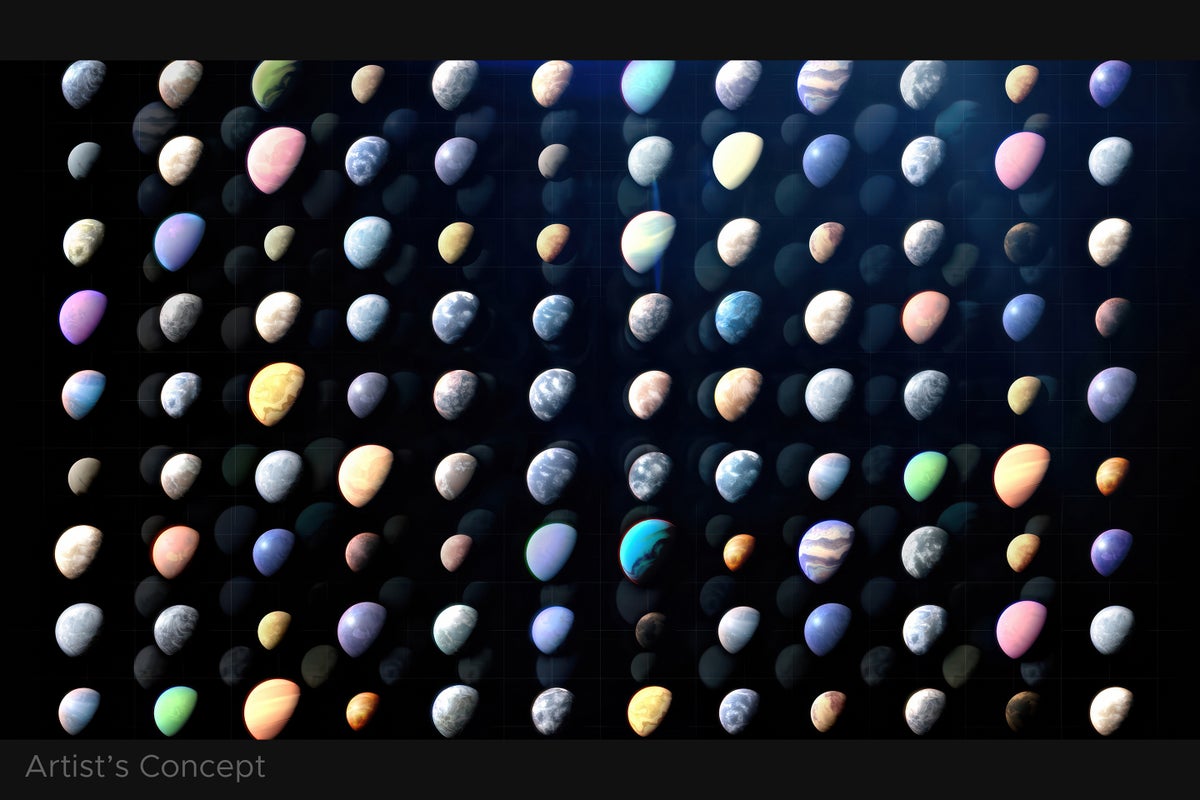
"Since astronomers found the first planets outside our solar system in 1992 and the first planet around a sunlike star in 1995, scientists have sought the telltale glimmers, flickers and wobbles that denote a distant world. Now NASA has announced the number of confirmed exoplanets has cracked 6,000, reaching a total of 6,007. The batch of 18 planets that bring us to this milestone are mostly rocky orbs between the size of Earth and Neptunethe most common type of planet found so far."
"Astronomers identified them with ground telescopes and NASA's Transiting Exoplanet Survey Satellite (TESS), which is currently orbiting Earth, and even by combing through data from the U.S. space agency's Kepler space telescope, which hasn't operated in seven years. Everywhere we look, we find planets, says Jessie Christiansen, chief scientist of the NASA Exoplanets Institute at the California Institute of Technology."
"The first exoplanets were found mostly by the gravitational pull they exert on their host stars: that pull causes a star to wobble, and this movement can be observed visibly or (far more often) detected via a change in the wavelength of stellar light. With the Kepler mission's launch in 2009, more and more exoplanets were discovered via the so-called transit method: a regular flicker in a star's light that occurs when its planet happens to pass between it and a watching telescope."
A total of 6,007 exoplanets have been confirmed. The latest 18 additions are primarily rocky worlds between Earth and Neptune in size, representing the most common class detected so far. Discoveries come from ground-based telescopes, NASA's TESS mission, and reanalysis of Kepler observations. Early detections relied on stellar wobbles caused by gravitational pull, while Kepler popularized transit photometry by recording periodic dips in starlight. TESS, launched in 2018, surveys the entire sky for transiting planets and has further increased the catalog. The growing number of detections implies planetary systems are widespread.
Read at www.scientificamerican.com
Unable to calculate read time
Collection
[
|
...
]